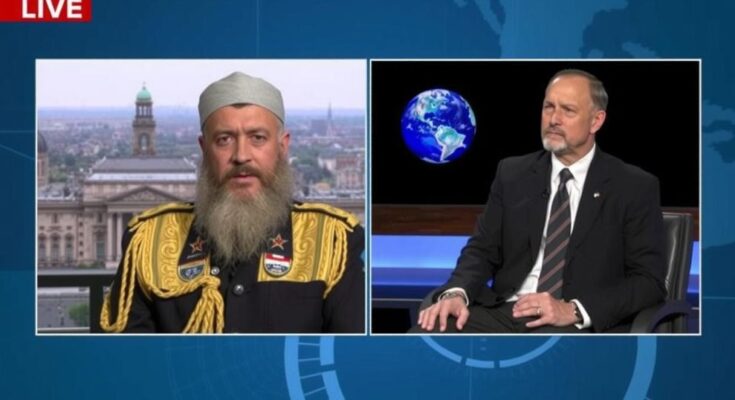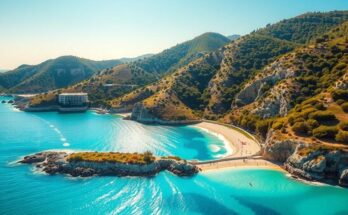Ahmed al-Sharaa, the leader of Syria’s Hayat Tahrir al-Sham, claimed in a BBC interview that Syria poses no threat to the world and called for the lifting of sanctions. He argued for HTS to be de-listed as a terrorist organization, emphasizing a commitment to education and a distinct Syrian identity, contrasting it with Afghanistan’s social structure.
In an interview with the BBC, Ahmed al-Sharaa, the de facto leader of Syria and head of the Hayat Tahrir al-Sham (HTS), asserted that the nation has endured significant exhaustion due to ongoing warfare and poses no threat to neighboring countries or the West. Following a recent offensive that resulted in the ousting of Bashar al-Assad’s regime, he called for the lifting of sanctions against Syria. He argued that HTS, which has been labeled a terrorist organization by various international bodies, should be removed from such listings, claiming their actions did not target civilians and reflecting a sense of victimhood regarding the Assad regime’s crimes.
Sharaa emphasized that, unlike Afghanistan, Syria has its unique traditions and societal structure, rejecting any intentions to replicate an extremist model. He underlined his commitment to education, particularly for women, asserting a progressive vision for the country’s future. Despite his assurances during the interview, skepticism remains among many Syrians regarding HTS’s departure from its extremist roots. The forthcoming actions of the group’s leadership will be crucial in determining Syria’s political landscape and the kind of governance the populace can anticipate.
The Syrian conflict has been ongoing for over a decade, resulting in a refugee crisis and extensive devastation. The emergence of various rebel factions, including Hayat Tahrir al-Sham, has led to a complex power struggle. HTS was formerly linked to al-Qaeda but has sought to distance itself from its radical origins. Ahmed al-Sharaa’s recent statements reflect an effort to redefine HTS’s image on the global stage while calling for support in rebuilding the war-torn nation. The international community remains skeptical, with prior experiences influencing their approach to HTS and the broader Syrian conflict.
In summary, Ahmed al-Sharaa’s interview with the BBC highlights his belief that Syria, exhausted by war, should be viewed not as a threat but as a victim of aggression. He advocates for lifting sanctions and re-evaluating the designation of HTS as a terrorist entity. While he promotes a vision of progress and education, the skepticism of many Syrians illustrates the complexities in transforming HTS’s image and establishing a stable governance model for Syria’s future.
Original Source: www.bbc.co.uk




